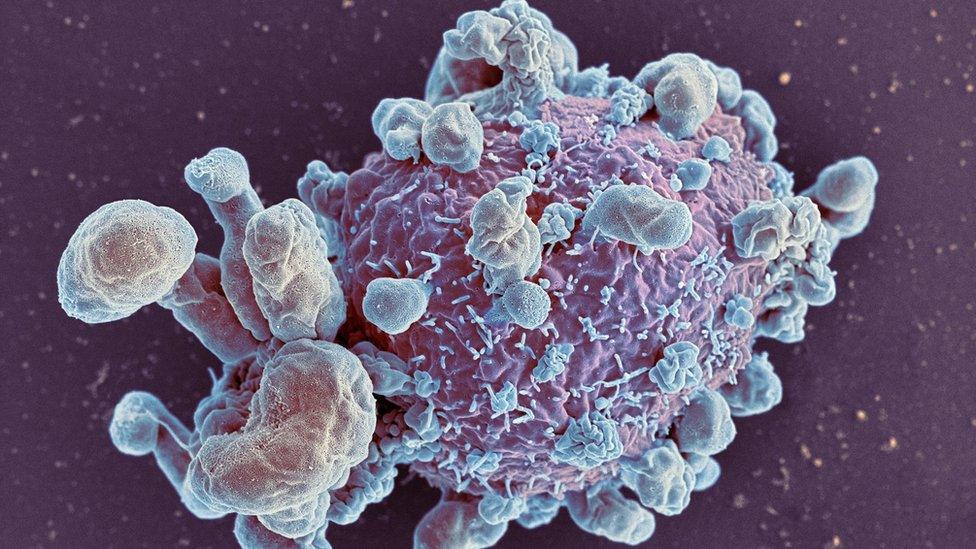Artificial Intelligence 'outsmarts cancer'
- Published

Early trial data shows a drug developed using artificial intelligence can slow the growth of cancer in clinical trials.
The data, presented at the American Society of Clinical Oncology conference, showed some tumours shrank by around a quarter.
The compound will now be taken into more advanced trials.
Scientists said we were now in an explosive stage of merging advances in computing with medicine.
Spotting every difference between a cancerous and a healthy cell is beyond even the brightest human minds.
So the US biotechnology company Berg has been feeding as much data as its scientists could measure on the biochemistry of cells into a supercomputer.
The aim was to let an artificial intelligence suggest a way of switching a cancerous cell back to a healthy one.
It led to their first drug, named BPM31510, which tries to reverse the Warburg effect - the phenomenon in which cancerous cells change their energy supply.
Data from 85 patients showed signs the approach could kill tumours.
The trial was designed to test only for toxicity, but in one patient the tumour shrank by a 25%.
Dr Niven Narain, one of the founders of Berg, said it was still early days for the drug, but claimed supercomputing was the future of cancer.
He told the BBC News website: "I think we're at a very explosive stage, this fusion of biology with technology in helping us understand the basis of this disease more fundamentally.
"It's going to allow us to make better decisions on how we develop drugs, to whom we give these drugs to so that we're able to increase the survival outcome."
Innovative treatments
The results from these patients are being fed back into the artificial intelligence in order to further target the therapy at those most likely to respond.
The company thinks cancers with high energy demands will benefit the most and is planning a more advanced trial in patients in pancreatic cancer.
Dr Alan Worsley, from Cancer Research UK, said we were only at the beginning of harnessing the huge advances in computing to understand cancer.
"We still don't fully understand how cancer cells get the energy they need to grow or how this differs from normal cells.
"It remains to be seen if a drug developed using this information will help cancer patients, but we need to keep finding new ways to find innovative treatments for patients."
But he said that in order to deliver personalised cancer treatment - that responds to the genetic changes taking place inside each patients tumour - then computers, not doctors, will be analysing the data.